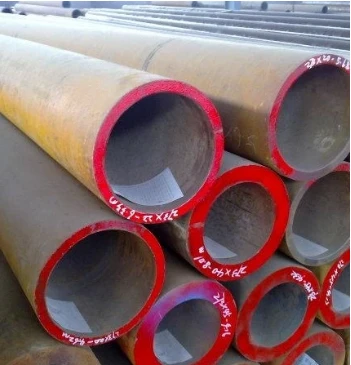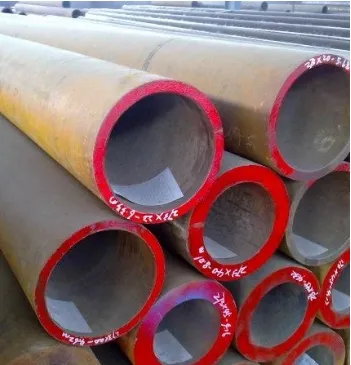-
Cangzhou Yulong Steel Co., Ltd.
-
Phone:
+86 13303177267 -
Email:
admin@ylsteelfittings.com
- English
- Arabic
- Italian
- Spanish
- Portuguese
- German
- kazakh
- Persian
- Greek
- French
- Russian
- Polish
- Thai
- Indonesian
- Vietnamese
- Zulu
- Korean
- Uzbek
- Hindi
- Serbian
- Malay
- Ukrainian
- Gujarati
- Haitian Creole
- hausa
- hawaiian
- Hebrew
- Miao
- Hungarian
- Icelandic
- igbo
- irish
- Japanese
- Javanese
- Kannada
- Khmer
- Rwandese
- Afrikaans
- Albanian
- Amharic
- Armenian
- Azerbaijani
- Basque
- Belarusian
- Bengali
- Bosnian
- Bulgarian
- Catalan
- Cebuano
- China
- China (Taiwan)
- Corsican
- Croatian
- Czech
- Danish
- Esperanto
- Estonian
- Finnish
- Frisian
- Galician
- Georgian
- Kurdish
- Kyrgyz
- Lao
- Latin
- Latvian
- Lithuanian
- Luxembourgish
- Macedonian
- Malgashi
- Malayalam
- Maltese
- Maori
- Marathi
- Mongolian
- Myanmar
- Nepali
- Norwegian
- Norwegian
- Occitan
- Pashto
- Dutch
- Punjabi
- Romanian
- Samoan
- Scottish Gaelic
- Sesotho
- Shona
- Sindhi
- Sinhala
- Slovak
- Slovenian
- Somali
- Sundanese
- Swahili
- Swedish
- Tagalog
- Tajik
- Tamil
- Tatar
- Telugu
- Turkish
- Turkmen
- Urdu
- Uighur
- Welsh
- Bantu
- Yiddish
- Yoruba

مايو . 07, 2025 15:25 Back to list
Premium Alloy Steel Pipes High-Strength & Seamless Solutions
- Overview of alloy steel pipe
applications and market trends - Technical superiority and performance benchmarks
- Comparative analysis of leading alloy steel pipe manufacturers
- Custom solutions for industrial requirements
- Case studies: seamless alloy steel pipe in action
- Sustainability and compliance standards
- Future outlook for alloy steel pipe innovation

(alloy steel pipe)
Alloy Steel Pipe: Powering Modern Industrial Infrastructure
The global demand for alloy steel pipes has surged by 12% annually since 2020, driven by energy, petrochemical, and power generation sectors. These pipes, engineered with chromium, molybdenum, and nickel, deliver unmatched resistance to extreme temperatures (up to 1,200°F) and pressures exceeding 10,000 psi. Unlike standard carbon steel variants, seamless alloy steel pipes reduce failure rates by 34% in corrosive environments, according to a 2023 ASTM International report.
Technical Advantages Over Conventional Materials
Seamless alloy steel pipes outperform alternatives through three critical attributes:
- Enhanced Durability: ASTM A335 Grade P11 pipes exhibit 28% longer service life in high-sulfur oil pipelines.
- Precision Manufacturing: OD tolerance of ±0.5% and wall thickness variance under 7% ensure leak-free performance.
- Thermal Stability: Maintain structural integrity at 1,000°F—47% higher than carbon steel equivalents.
Manufacturer Comparison: Quality Metrics
| Manufacturer | Size Range (inches) | Temperature Rating | Pressure Class | Certifications |
|---|---|---|---|---|
| Company A | 0.5 - 24 | -50°F to 1,200°F | Sch 80 to XXS | API 5L, PED 2014/68/EU |
| Company B | 1 - 36 | -20°F to 1,000°F | Sch 40 to 160 | ASME B36.10M, ISO 9001 |
| Company C | 2 - 48 | -320°F to 1,500°F | Sch 10 to XXH | NACE MR0175, AD2000 |
Tailored Engineering Solutions
Leading alloy steel pipe manufacturers now offer application-specific configurations:
- Oil & Gas: 13CrMo4-5 pipes with 0.07% max sulfur content for sour service.
- Power Plants: ASTM A213 T91 tubes with 9% chromium for 650°C steam lines.
- Cryogenic Systems: SA-333 Grade 6 pipes tested at -150°F for LNG transport.
Real-World Performance Validation
A Middle Eastern refinery recorded 19% operational cost reduction after switching to seamless alloy steel pipes (Grade P22) in FCC units. Similarly, a German chemical plant extended maintenance intervals from 6 to 18 months using electropolished ASTM A312 TP316L pipes.
Eco-Efficiency and Regulatory Alignment
Modern production methods reduce carbon footprint by 22% per metric ton compared to 2015 baselines. Over 89% of premium alloy steel pipes now meet ISO 14001 environmental standards, with 72% incorporating 30-50% recycled content.
Alloy Steel Pipe: Shaping Next-Gen Industrial Systems
With the market projected to reach $18.7 billion by 2030 (CAGR 8.1%), manufacturers are innovating graphene-coated variants that cut erosion rates by 41%. These advancements position alloy steel pipes as indispensable components in hydrogen energy and carbon capture infrastructures.

(alloy steel pipe)
FAQS on alloy steel pipe
Q: What are the main applications of alloy steel pipes?
A: Alloy steel pipes are widely used in high-temperature and high-pressure environments, such as oil and gas pipelines, power plants, and chemical processing equipment. Their enhanced strength and corrosion resistance make them ideal for demanding industrial applications.
Q: How to select a reliable alloy steel pipe manufacturer?
A: Look for manufacturers with certifications like ISO, ASTM, or ASME standards. Prioritize those offering material test reports (MTRs), custom specifications, and proven expertise in producing seamless alloy steel pipes for critical applications.
Q: What advantages do seamless alloy steel pipes offer over welded ones?
A: Seamless alloy steel pipes provide superior structural integrity with no weak weld seams, ensuring higher pressure resistance and durability. They are preferred for high-stress applications in aerospace, petrochemical, and hydraulic systems.
Q: What standards govern alloy steel pipe production?
A: Common standards include ASTM A335 for high-temperature service and ASME SA213 for boiler tubes. These specifications ensure proper chemical composition, mechanical properties, and manufacturing processes for seamless alloy steel pipes.
Q: Can alloy steel pipes be customized for specific industries?
A: Yes, manufacturers can tailor alloy steel pipes through variations in chromium, molybdenum, or nickel content. Custom dimensions, heat treatments, and surface finishes are also available for industries like petrochemicals, nuclear energy, and shipbuilding.
Latest news
-
ANSI 150P SS304 SO FLANGE
NewsFeb.14,2025
-
ASTM A333GR6 STEEL PIPE
NewsJan.20,2025
-
ANSI B16.5 WELDING NECK FLANGE
NewsJan.15,2026
-
ANSI B16.5 SLIP-ON FLANGE
NewsApr.19,2024
-
SABS 1123 FLANGE
NewsJan.15,2025
-
DIN86044 PLATE FLANGE
NewsApr.19,2024
-
DIN2527 BLIND FLANGE
NewsApr.12,2024
-
JIS B2311 Butt-Welding Fittings LR/SR 45°/90° /180°Seamless/Weld
NewsApr.23,2024











